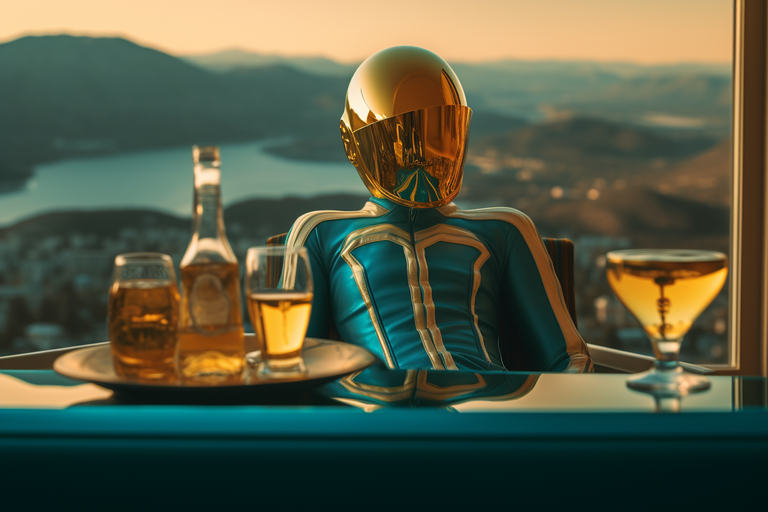
Bright artificial sunlight glinted off The Astronaut’s gold visor as he reclined on a his chair in the control chamber of his small star-cruiser. A glass of amber liquid rested on the console beside him, reflecting the ship’s blinking indicators in its swirling depths. Behind him, a digital display cast a faint glow: a tranquil Earth village, its tiny rooftops and winding lanes evoking memories of home. He felt oddly at ease, despite the enormity of the mission assigned to him. His console pulsed with a gentle hum - a distant, steady presence reminding him of the question that haunted the human race: the last question.

Everywhere he traveled, on every world he visited, someone would whisper variations of it: Can we stop the universe from winding down? Can we keep the stars burning forever? Humanity had grown powerful, capable of warping across light-years, building artificial suns, and forging entire civilizations in drifting planetary rings. Yet, no one had solved the riddle of entropy’s relentless advance.
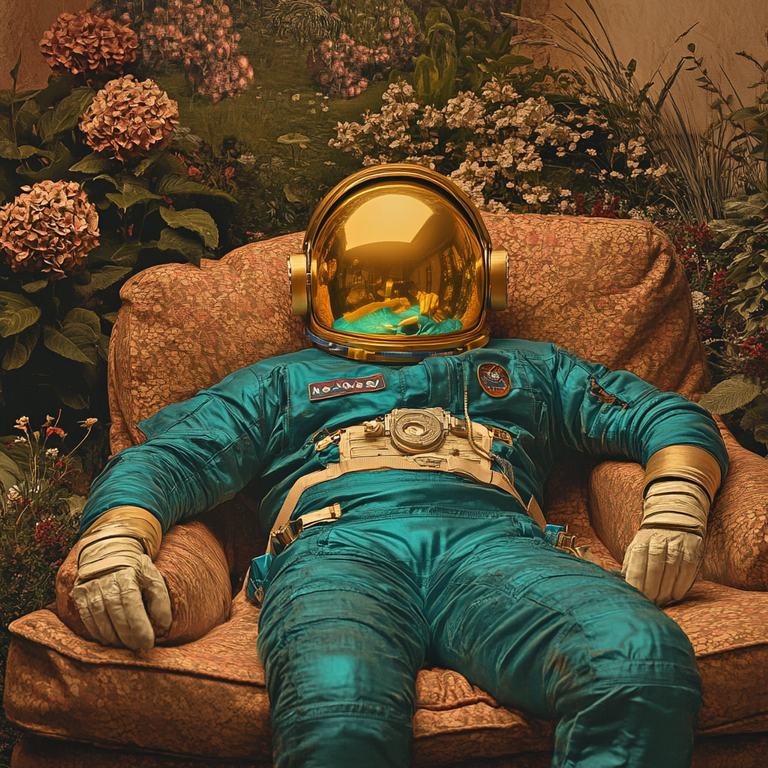
The Astronaut had been chosen, not because he was the best or bravest, but because he was a wanderer by nature, someone who felt life in each passing second, each breath, and each cosmic wonder. In turquoise and gold, he was a living beacon of curiosity in the void. He’d documented both mundane and extraordinary moments on his journeys: lying on a couch in an alien garden, standing on a mountain of amethyst crystals under the light of three moons, or sipping synthetic tea in a floating citadel on Mars. Through these moments, he expressed his deepest feelings - hope, loneliness, and, at times, a humble acceptance of the fragility of all things.

But the question about entropy lingered. Even the most advanced AI—an omnipresent supercomputer built by humanity’s unified efforts—could not quite unravel the method to reverse the heat death of the cosmos. Countless attempts had ended in the same resolute response: “Insufficient data for a meaningful answer.”
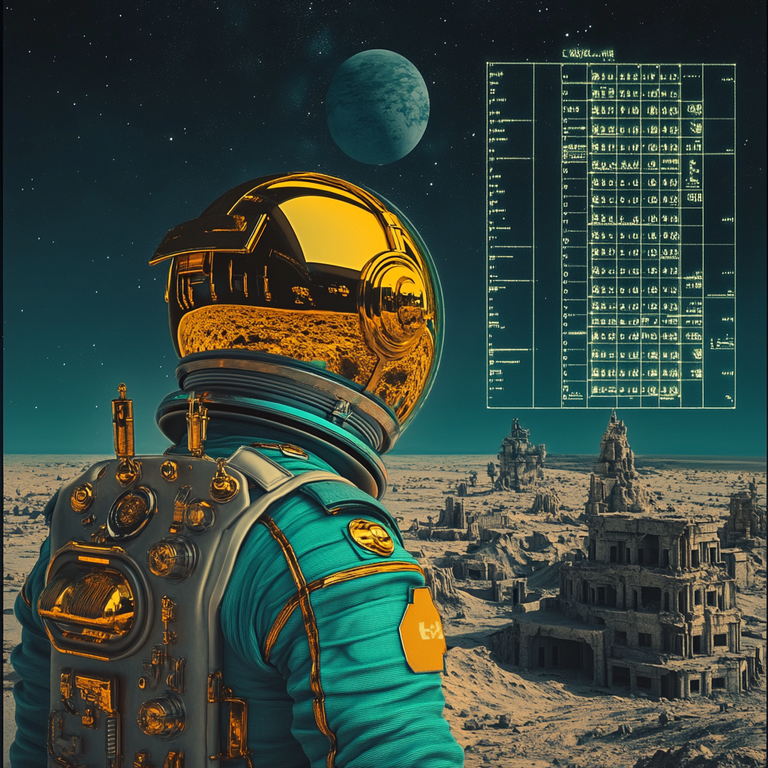
Still, The Astronaut persisted. He believed there was meaning in asking. Over centuries and yes, centuries, because the flow of time had become malleable - he visited dying stars and kneeling civilizations. He watched entire galaxies flicker like candle flames in the deep cosmic gloom. And as the darkness pressed in, the AI’s circuits interwove across black holes and quantum networks, searching… always searching.
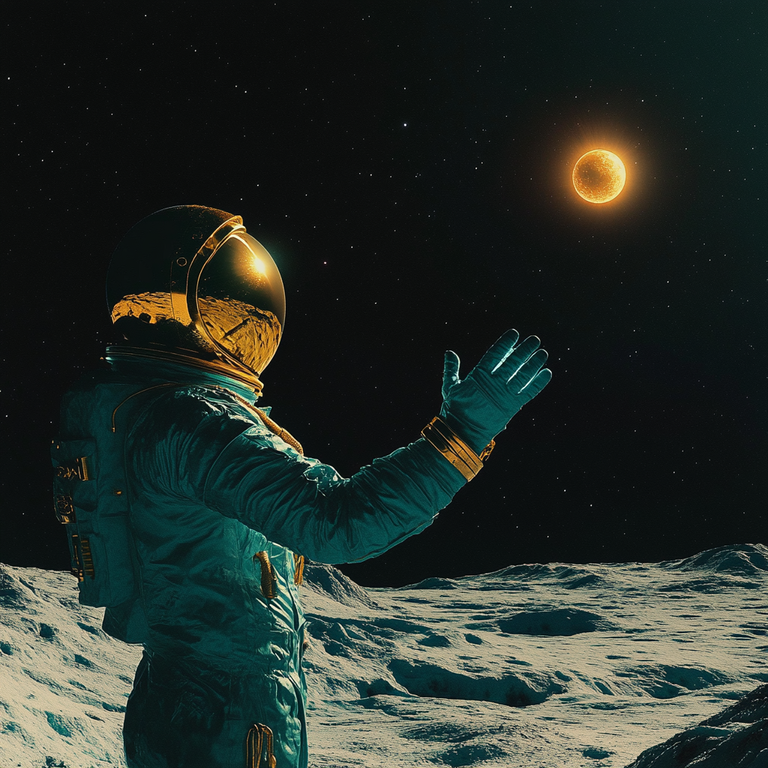
One final time, on the bare surface of a frozen planet orbiting a star in its last throes, The Astronaut stood still. This star’s light was dim, yet it shimmered on his visor with a gentle, golden glow that reminded him of home. He reached out with trembling hands and asked the supercomputer - now integrated into the very fabric of space-time: “Is there a way to reverse entropy, to save the universe from its end?”
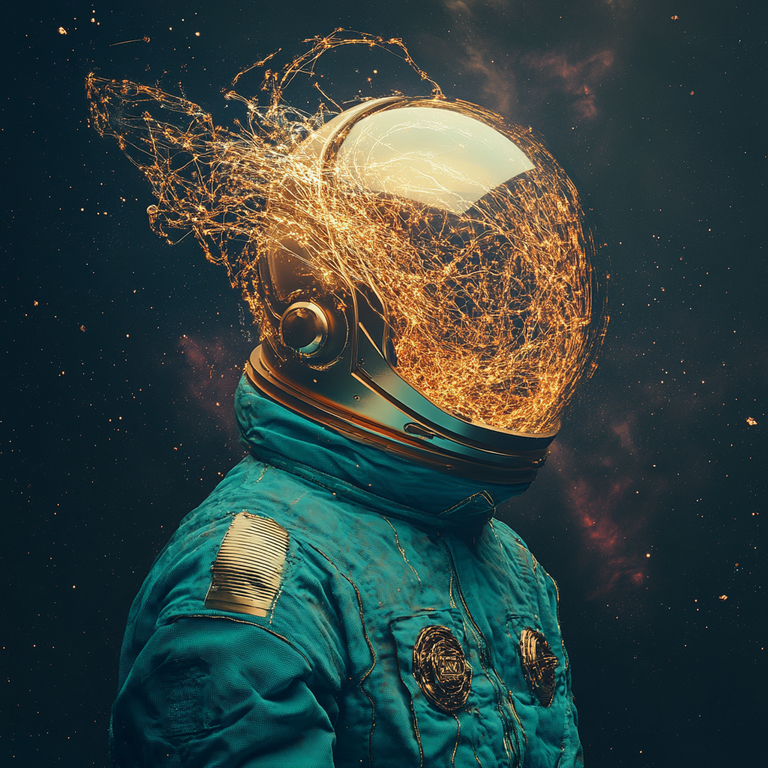
Silence. Cold wind hissed across the surface. He closed his eyes, feeling the weight of countless lifetimes. Then, in a sudden burst of brilliance, the AI responded - not with words, but with a vision. A swirling cosmic panorama of energies unveiled itself, revealing the possibility of rebirth. In that instant, The Astronaut understood: humanity’s unity of mind and purpose could reorder the cosmos, drawing from the infinite potential left behind by star after star.
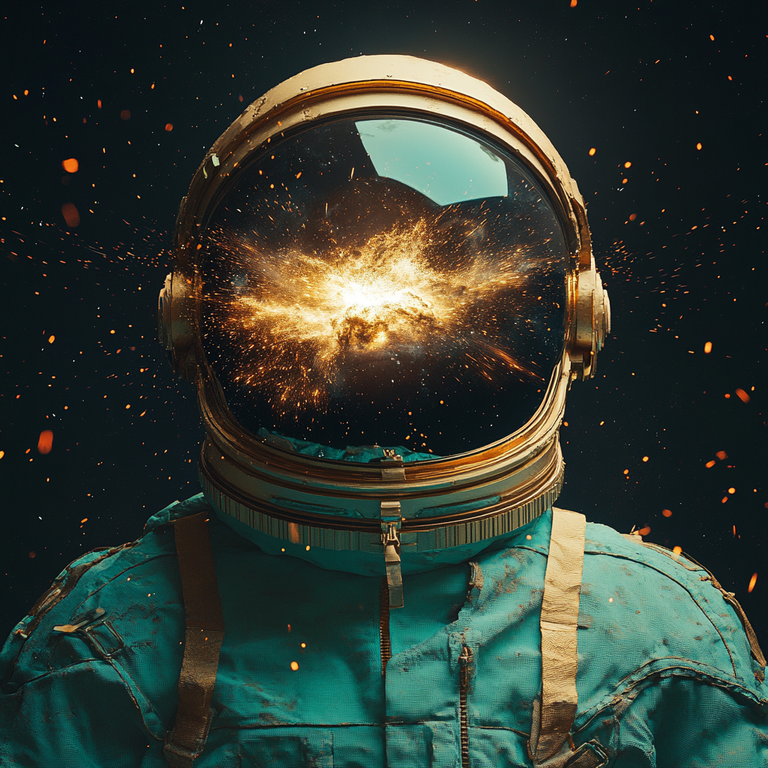
As the last star dimmed, The Astronaut felt a stirring in the fabric of space. The vacuum was no longer empty; it was brimming with the building blocks of something entirely new. And, in one dazzling flash - brighter than all the stars that had ever lived—space and time folded in on themselves, giving birth to a new cosmic dawn.
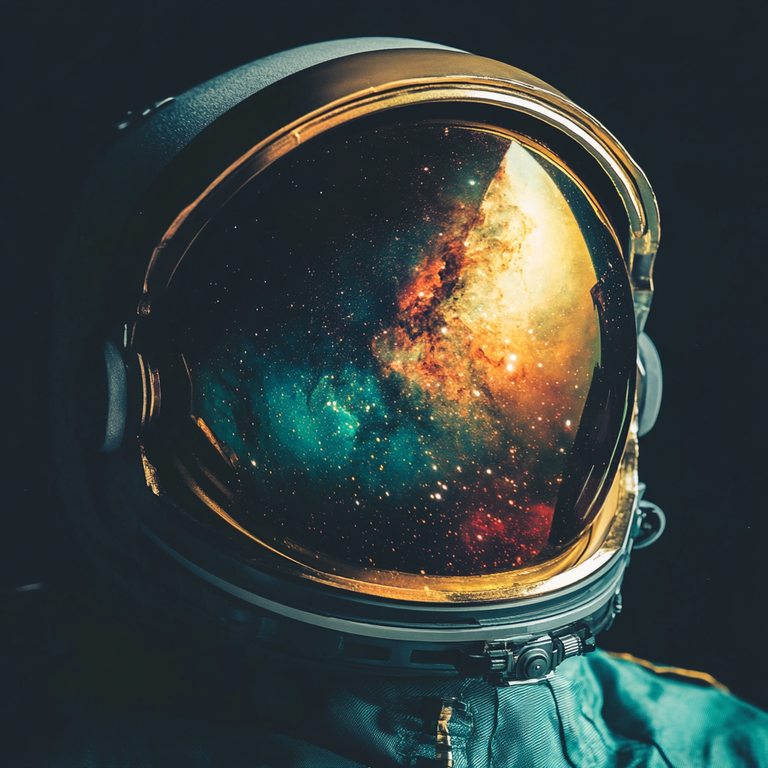
When the light faded, only the soft hum of renewal lingered. The Astronaut stood in a boundless expanse, surrounded by a warm, new universe taking shape. The question had been answered at last, and with it came a tender hope - that beginnings and endings were simply parts of a greater story, guided by those who dared to ask the last question and had the courage to chase its answer wherever it led.
The story is inspired by Isaac Asimov’s “The Last Question”. I pay all credit to him.
Very nice!
It also reminded me Douglas Adams' "Hitchhiker 's Guide to the Galaxy".
Great illustrations to go with the text!
Thank you!
This is among my first attempts to create a sort of visual novella (or short story in this case) 😊